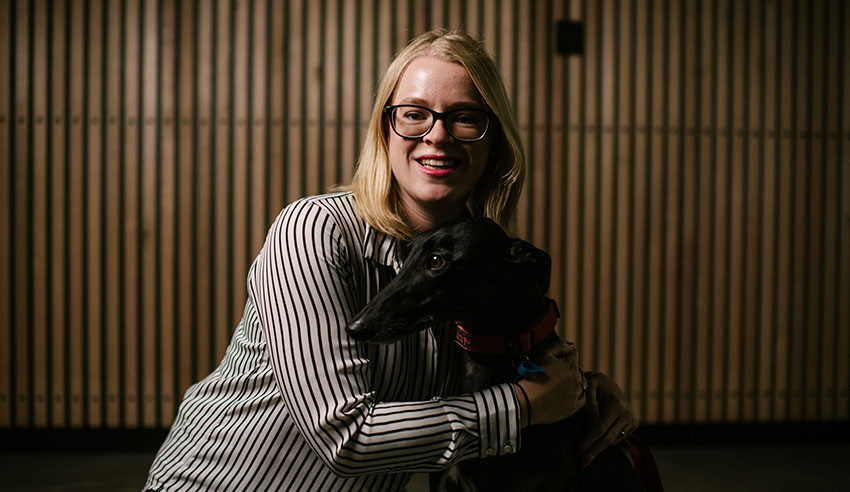Both during the pandemic and after it, lawyers must better prioritise their wellbeing with consistent, creative outlets befitting the “new normal”, says Lauren Kelindeman.

“We need to actively and regularly do things that make us feel good to maintain our wellbeing – this won’t happen passively.”
‘Love Your Life’
Her in-house initiative, Love Your Life, sees legal professionals undertake 15-minute wellbeing sessions on Zoom whereby persons could engage in creative activities such as drawing to ensure greater prioritisation of holistic health needs on a daily basis.
Some of the headline findings from a firm-wide survey about the initiative, she proclaimed, were that everyone reported an increase in their wellbeing, 89 per cent rated their happiness levels at 9/10 post-sessions, and all persons felt more productive on the days they attended such sessions compared to the days they did not.
“I don’t know about you, but I don’t remember a time when I would rate my happiness at 9 out of 10 or above at 2:15pm in the afternoon. Usually this is the time when the post-lunch slump kicks in,” Ms Kelindeman told Lawyers Weekly.
In framing the initiative for her firm, she noted that she has studied several online courses on psychology and has “put into place what I have learnt”.
“This has made a huge difference to my wellbeing and I want to share these with as many lawyers as possible. I have [generalised anxiety disorder] and know that when I am [proactively] doing activities that are good for wellbeing, I am happier, healthier and better at my job. After all, there is really nothing more important [than] our health,” she posited.
Moreover, there are professional imperatives to keeping one’s head above water, she added.
“Wellbeing is particularly important for lawyers for a number of reasons – firstly, we are taking on other people’s problems and often experience stress and vicarious trauma as a result of this. Secondly, lawyers generally tend to work long hours, which negatively impacts your wellbeing as it takes away time from other aspects of your life, such as social connection and exercise. Thirdly, many lawyers are high achievers and tend to put a lot of pressure on themselves,” she said.
Why be creative?
During sessions held on a Monday, Ms Kelindeman outlined, the theme is “creativity”, and can involve a drawing class, making origami, learning a dance or writing a story.
“After doing this people feel fulfilled and proud of what they have created. Our studies show that 50 per cent of attendees have started drawing outside of the sessions. This means that people are being creative more often,” she explained.
“When lawyers have more creativity in their life there are a number of flow-on benefits in their role – they will be more innovative, they think outside the box, come up with unique and new solutions and their [problem-solving] improves. This can benefit both your clients but also your organisation and internal processes.
“For example, I [handmake] cards to send to our clients who have achieved milestones such as starting a business. This is a creative way to show clients that we care.”
Many lawyers are feeling particularly stressed and anxious at this juncture, Ms Kelindeman mused.
“When we feel like this, it is impossible and unreasonable to expect that we will be our most productive or motivated selves. Our studies show that taking a 20-minute break in the day and doing an activity that is good for wellbeing can improve your mood and productivity,” she noted.
“Everyone we surveyed felt more productive compared with the days they did not attend. Sixty-seven per cent of people felt motivated. Most impressively, nearly 90 per cent of people rated their happiness levels at 9 out of 10 or above after a session.
“How many people could honestly rate their happiness at 9 out of 10 at 2:30pm in the afternoon, especially in 2020? Can you imagine if every lawyer in Australia walked back to their desk after a wellbeing session feeling this incredible? This has flow-on effects on others – how you treat your colleagues, clients and lawyers on the other side.”
Looking ahead
Often, Ms Kelindeman observed, lawyers say they are too busy to prioritise wellbeing and engage with such creative activities. Junior lawyers in particular, she said, say they are worried they will get in trouble with their superiors for taking a break.
“A culture of wellbeing comes from the top and leaders should be self-aware of the example they are setting. If you see your boss going for a walk at [lunchtime], you will be more likely to do it as well. If you see your boss never taking a lunch break, you will feel guilty for taking one yourself,” she said.
“If you have some obstacles at your workplace, a wellbeing initiative doesn’t need to be company-wide – you can start small! It can be as simple as you and another colleague or your team choosing an activity to do together that you enjoy, such as online yoga, a book club, meditation challenge, etc.”

Jerome Doraisamy is the managing editor of professional services (including Lawyers Weekly, HR Leader, Accountants Daily, and Accounting Times). He is also the author of The Wellness Doctrines book series, an admitted solicitor in New South Wales, and a board director of the Minds Count Foundation.
You can email Jerome at: